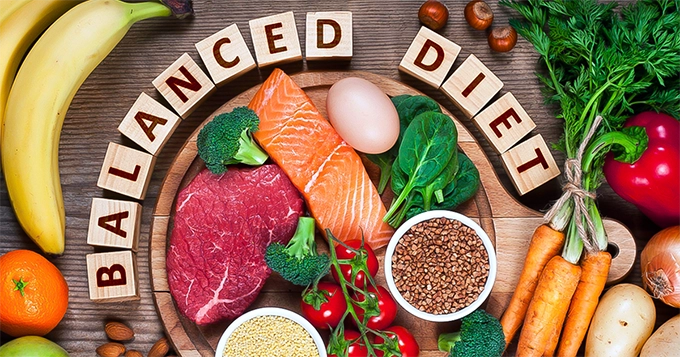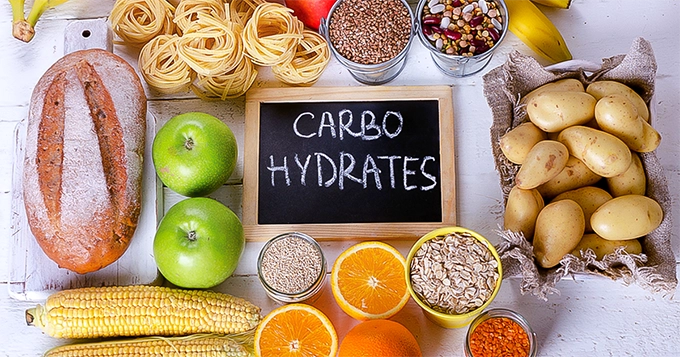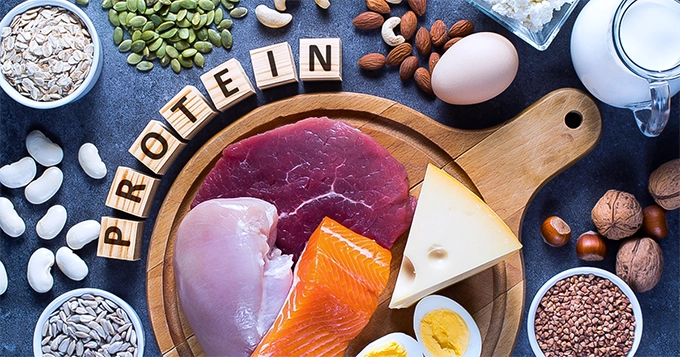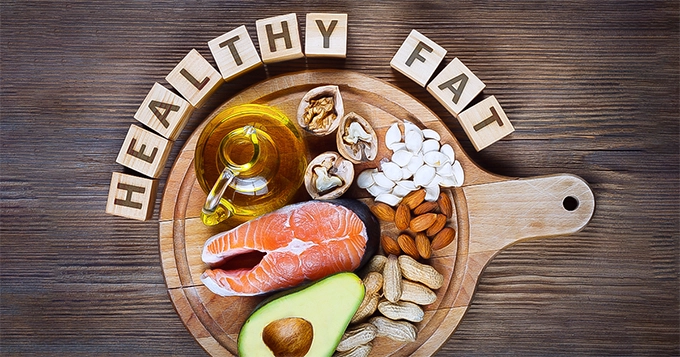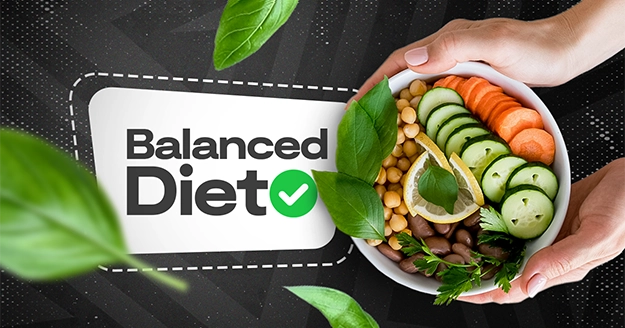Introduction
A balanced diet involves eating a wide variety of foods in appropriate proportions and consuming the proper quantity of important nutrients in order to reach and keep a healthy body weight.
A well-balanced diet supplies you with all of the energy you need for the day, as well as all of the nutrients that help your body develop and repair on its own, allowing you to stay strong and healthy while preventing diet-related disorders such as some types of cancer.
The essential nutrients your body needs include carbohydrates, protein, fat, vitamins, and minerals.
Carbohydrates
Carbohydrates are your main source of energy. Carbohydrates supply glucose to the body. The glucose is transformed into energy for biological functions and physical activities.
Headaches, difficulty concentrating, weakness, exhaustion, foul breath, nausea, constipation, and vitamin and mineral shortages can all result from a low-carbohydrate diet. To get the full benefits of carbohydrates, you should include nutrient-rich carbohydrates such as carbs high in fiber.
Some good sources of carbohydrates rich in fiber are:
- Beans
- Whole grain bread
- Whole grain cereals
- Popcorn
- Whole wheat pasta
If you’re looking to try meals that are high in fiber, you can try Pea & Spinach Carbonara, Quinoa Chickpea Salad with Roasted Red Pepper Hummus Dressing, Beef & Bean Sloppy Joes, and Sautéed Broccoli with Peanut Sauce.
Proteins
Proteins are large, intricate molecules that are known for their vital functions in the body. They fulfill the majority of their functions in cells and are crucial for the development, maintenance, and management of the body’s tissues and organs.
Lack of protein can cause muscle mass loss, which also reduces your strength, making it more difficult to maintain balance. Not including enough protein in your diet for a longer period of time can also slow down your metabolism.
Some good sources of protein are:
- Meat
- Eggs
- Dairy products
- Nuts
- Legumes like beans and lentils
If you want to incorporate high protein into your diet, you can try these dishes: Spicy Shrimp Spinach Caesar Salad, Spinach and Tomato Pasta With Poached Egg, Apple Cider Chicken Skillet, Tilapia in Parchment With Tomato and Broccoli Over Rice, and Pea and Farro Stir-Fry.
Fats
Our bodies cannot produce essential fatty acids. These come from the food we consume. We need fat to help our bodies absorb certain vitamins. For example, vitamins A, D, and E are only absorbed with the aid of lipids because they are fat-soluble. Dietary fats also provide us with energy, aid in maintaining body temperature, are needed to sustain healthy cell function, and protect our organs.
Since fat helps us absorb vitamins, not consuming enough fat in our daily diet can eventually lead to vitamin deficiencies which can result to dry rashes, hair loss, and a weakened immune system. But not all fats are healthy to consume. Ensure you eat healthy dietary fats.
There are 4 major dietary fats in food:
- Saturated fats. Usually solid at room temperature. Commonly found in butter, red meat, and coconut oils. Saturated fats raise your low-density lipoprotein (LDL) or bad cholesterol.
- Trans fats. Trans fats lower your high-density lipoprotein (HDL) or good cholesterol, which is bad for overall cardio health.
- Monounsaturated fats. Monounsaturated fats benefit your health in a number of ways, including by helping to reduce the amount of LDL, or “bad” cholesterol.
- Polyunsaturated fats. These fats are considered healthy fats which are good for the heart.
These are some of the good sources of healthy fats:
- Olive oil
- Flax seeds
- Cheese
- Chia seeds
- Fatty fish (trout, salmon, mackerel, tuna, and sardines)
For a more balanced meal, you can try these satisfying meals high in healthy fats: Crispy Trout with Fennel and Frisee, Chia Seed Pudding, Healthy Avocado Egg Salad, Garlic Ghee Butter Quinoa, and Grilled Salmon with Avocado Salsa.
Vitamins and Minerals
The body needs vitamins and minerals, which are called micronutrients, to perform a number of everyday functions.
The 13 essential vitamins are:
- Vitamin A
- Vitamin C
- Vitamin D
- Vitamin E
- Vitamin K
- Thiamine
- Riboflavin
- Niacin
- Pantothenic acid
- Biotin
- B6
- B12
- Folate
Some essential minerals are:
- Calcium,
- Phosphorus
- Potassium
- Sodium
- Chloride
- Magnesium
- Iron
- Zinc
- Iodine
- Sulfur
- Cobalt
- Copper
- Fluoride
- Manganese
- Selenium
Numerous indications of vitamin insufficiency include weariness, dry skin and hair, depression, slow wound healing, and more. Although they can differ depending on the deficiency, many of them overlap. Typically, you don’t start to see any effects until you’ve had low levels for a few months.
Try adding these good sources of vitamins and minerals to your meals:
- Shellfish
- Fruit
- Leafy green vegetables
- Fortified cereals
- Almonds
- Lima beans
- Fortified milk
- Organ meats such as liver
Conclusion
Eating a balanced meal complete with the necessary nutrients is essential for a healthier lifestyle. Enhancing your health, having more energy, elevating your mood, and just feeling good in general are the main benefits of eating a healthy balanced diet.
